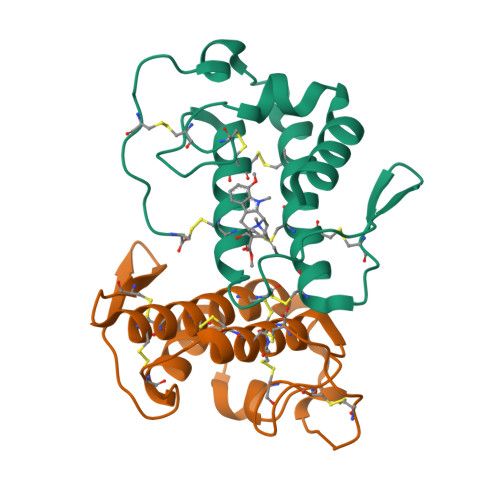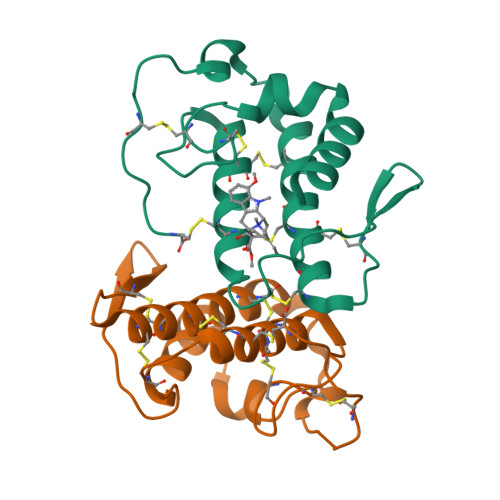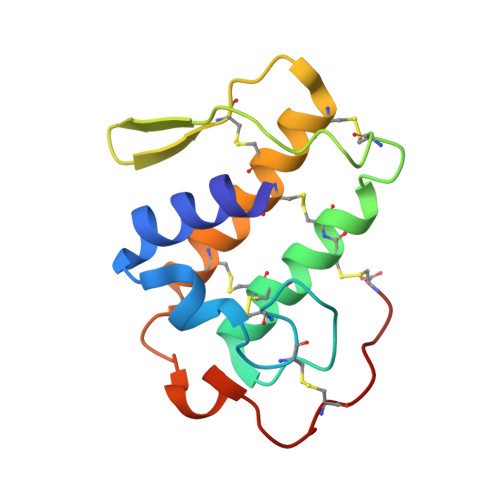Structural and functional studies of a snake venom phospholipase A 2 -like protein complexed to an inhibitor from Tabernaemontana catharinensis.
Borges, R.J., Cardoso, F.F., de Carvalho, C., de Marino, I., Pereira, P.S., Soares, A.M., Dal-Pai-Silva, M., Uson, I., Fontes, M.R.M.(2023) Biochimie 206: 105-115
- PubMed: 36273763
- DOI: https://doi.org/10.1016/j.biochi.2022.10.011
- Primary Citation of Related Structures:
7ROX - PubMed Abstract:
Snake envenomation is an ongoing global health problem and tropical neglected disease that afflicts millions of people each year. The only specific treatment, antivenom, has several limitations that affects its proper distribution to the victims and its efficacy against local effects, such as myonecrosis. The main responsible for this consequence are the phospholipases A 2 (PLA 2 ) and PLA 2 -like proteins, such as BthTX-I from Bothrops jararacussu. Folk medicine resorts to plants such as Tabernaemontana catharinensis to palliate these and other snakebite effects. Here, we evaluated the effect of its root bark extract and one of its isolated compounds, 12-methoxy-4-methyl-voachalotine (MMV), against the in vitro paralysis and muscle damage induced by BthTX-I. Secondary and quaternary structures of BthTX-I were not modified by the interaction with MMV. Instead, this compound interacted in an unprecedented way with the region inside the toxin hydrophobic channel and promoted a structural change in Val31, loop 58-71 and Membrane Disruption Site. Thus, we hypothesize that MMV inhibits PLA 2 -like proteins by preventing entrance of fatty acid into the hydrophobic channel. These data may explain the traditional use of T. catharinensis extract and confirm MMV as a promising candidate to complement antivenom or a structural guide to develop more effective inhibitors.
Organizational Affiliation:
Departamento de Biofísica e Farmacologia, Instituto de Biociências, Universidade Estadual Paulista (UNESP), Botucatu, São Paulo, 18618-689, Brazil; Crystallographic Methods, Institute of Molecular Biology of Barcelona (IBMB-CSIC), Barcelona, 08028, Spain. Electronic address: rafael.borges@unesp.br.



















